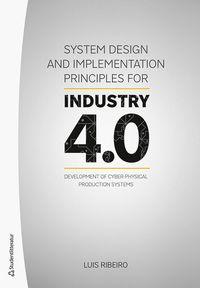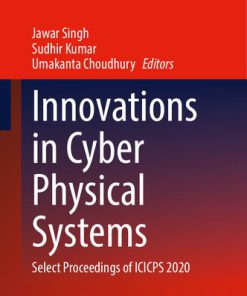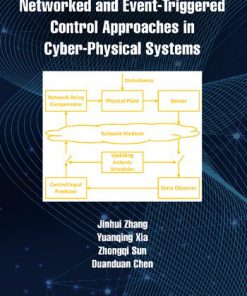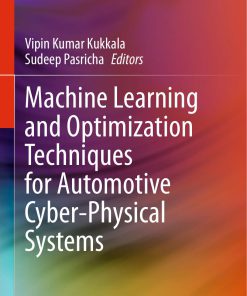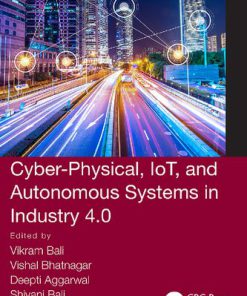Multi Paradigm Modelling Approaches for Cyber Physical Systems 1st Edition by Bedir Tekinerdogan, Dominique Blouin, Hans Vangheluwe, Miguel Goulão, Paulo Carreira, Vasco Amaral ISBN 9780128191057 0128191058
$50.00 Original price was: $50.00.$25.00Current price is: $25.00.
Multi Paradigm Modelling Approaches for Cyber Physical Systems 1st Edition by Bedir Tekinerdogan, Dominique Blouin, Hans Vangheluwe, Miguel Goulão, Paulo Carreira, Vasco Amaral – Ebook PDF Instant Download/Delivery: 9780128191057 ,0128191058
Full download Multi Paradigm Modelling Approaches for Cyber Physical Systems 1st Edition after payment
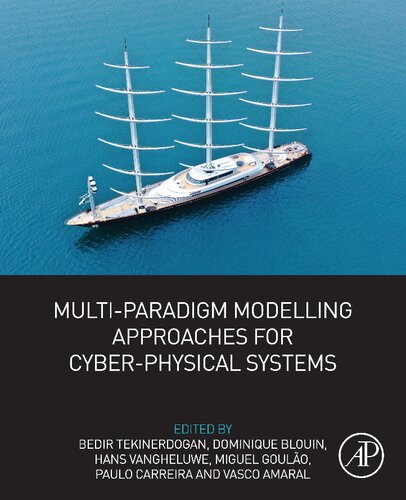
Product details:
ISBN 10: 0128191058
ISBN 13: 9780128191057
Author: Bedir Tekinerdogan, Dominique Blouin, Hans Vangheluwe, Miguel Goulão, Paulo Carreira, Vasco Amaral
Multi-Paradigm Modelling for Cyber-Physical Systems explores modeling and analysis as crucial activities in the development of Cyber-Physical Systems, which are inherently cross-disciplinary in nature and require distinct modeling techniques related to different disciplines, as well as a common background knowledge. This book will serve as a reference for anyone starting in the field of CPS who needs a solid foundation of modeling, including a comprehensive introduction to existing techniques and a clear explanation of their advantages and limitations. This book is aimed at both researchers and practitioners who are interested in various modeling paradigms across computer science and engineering.
- Identifies key problems and offers solution approaches as well as tools which have been developed or are necessary for modeling paradigms across cyber physical systems
- Explores basic theory and current research topics, related challenges, and research directions for multi-paradigm modeling
- Provides a complete, conceptual overview and framework of the research done by the MPM4CPS working groups and the different types of modeling paradigms developed
Multi Paradigm Modelling Approaches for Cyber Physical Systems 1st Edition Table of contents:
Chapter 1: Introduction
Abstract
1.1. Objectives
1.2. Outline of the book
1.3. Acknowledgements
Part 1: Ontological framework
Chapter 2: An ontological foundation for multi-paradigm modelling for cyber-physical systems
Abstract
2.1. Introduction
2.2. Ontology development approach
2.3. Modelling languages and tools
2.4. Ontology architecture
2.5. Shared ontology
2.6. Introduction of examples
2.7. Conclusion
References
Chapter 3: A feature-based ontology for cyber-physical systems
Abstract
3.1. Introduction
3.2. Metamodel of cyber-physical systems
3.3. Feature model of cyber-physical systems
3.4. Architecture of CPS
3.5. Examples
3.6. Conclusion
References
Chapter 4: An ontology for multi-paradigm modelling
Abstract
4.1. Introduction
4.2. State of the art
4.3. MPM ontology
4.4. Examples
4.5. Conclusion
References
Chapter 5: An integrated ontology for multi-paradigm modelling for cyber-physical systems
Abstract
5.1. Introduction
5.2. State of the art
5.3. Ontology
5.4. Examples
5.5. Conclusion
References
Part 2: Methods and tools
Chapter 6: Enabling composition of cyber-physical systems with the two-hemisphere model-driven approach
Abstract
6.1. Introduction
6.2. Components of cyber-physical systems
6.3. Cyber-physical systems in the context of system composition
6.4. Two-hemisphere model-driven approach
6.5. The two-hemisphere model-driven approach for solving composition problems
6.6. Conclusions
Acknowledgements
References
Chapter 7: Multi-paradigm modelling and co-simulation in prototyping a cyber-physical production system
Abstract
7.1. Introduction
7.2. Case study description
7.3. Techniques
7.4. Methodology
7.5. Modelling of the subsystems
7.6. Verification & validation
7.7. Conclusion
Acknowledgements
References
Chapter 8: Agent-based cyber-physical system development with SEA_ML++
Abstract
8.1. Introduction
8.2. Background
8.3. Related work
8.4. SEA_ML++
8.5. Agent-based CPS modelling and development using SEA_ML++
8.6. Development of a multi-agent garbage collection CPS
8.7. Conclusion
Acknowledgements
References
Chapter 9: CREST – a DSML for hybrid CPS modelling
Abstract
9.1. Introduction
9.2. Hybrid formalisms
9.3. Domain-specific, hybrid modelling using CREST
9.4. Implementation
9.5. Discussion
9.6. Summary
References
Part 3: Case studies
Chapter 10: Development of an IoT and WSN based CPS using MPM approach: a smart fire detection case study
Abstract
10.1. Introduction
10.2. Requirement elicitation
10.3. System design
10.4. Modelling and simulation
10.5. Implementation
10.6. Multi-paradigm development process in FTG+PM framework
10.7. Summary
10.8. Literature and further reading
Acknowledgements
References
Chapter 11: Development of industry oriented cross-domain study programs in cyber-physical systems for Belarusian and Ukrainian universities
Abstract
11.1. Introduction
11.2. Related work
11.3. Review of the labour markets of Belarus and Ukraine
11.4. COST Action input to European curricula on CPS
11.5. Identification of industry needs
11.6. Validation of COST findings for curricula on CPS in Belarusian and Ukrainian universities
11.7. Discussions and conclusions
Acknowledgements
References
Index
People also search for Multi Paradigm Modelling Approaches for Cyber Physical Systems 1st Edition:
multi-paradigm modelling
multi-modality approach
multi-paradigm approach
multi-dimensional approach
multi-paradigm design for c++
Tags: Bedir Tekinerdogan, Dominique Blouin, Hans Vangheluwe, Miguel Goulão, Paulo Carreira, Vasco Amaral, Multi Paradigm
You may also like…
Computers - Security
Security and Resilience of Cyber Physical Systems 1st Edition Krishan Kumar
Engineering - Engineering - General & Miscellaneous
Computers - Hardware
Innovations in Cyber Physical Systems Select Proceedings of ICICPS 2020 1st Edition Jawar Singh
Computers - Networking
Engineering - Robotics & Artificial Intelligence
Engineering - Industrial Engineering & Materials Science
Computers - Networking
Computers - Security
Security and Resilience in Cyber Physical Systems Detection Estimation and Control Masoud Abbaszadeh
Engineering - Engineering Technology
Management and Engineering of Critical Infrastructures 1st Edition Bedir Tekinerdogan




